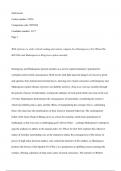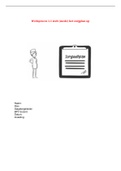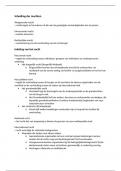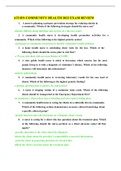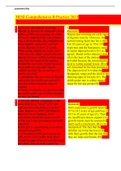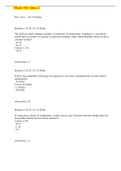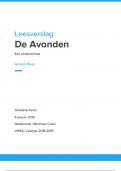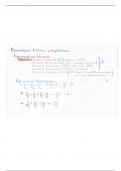Essay
English literature coursework 60/60
- Module
- Coursework
- Institution
- PEARSON (PEARSON)
Title: With reference to wider critical reading and context compare how Hemingway in For Whom The Bell Tolls and Shakespeare in King Lear explore morality This essay received 60/60 and is a great example of what the examiners are looking for in a piece of English coursework it provides an in dept...
[Show more]
